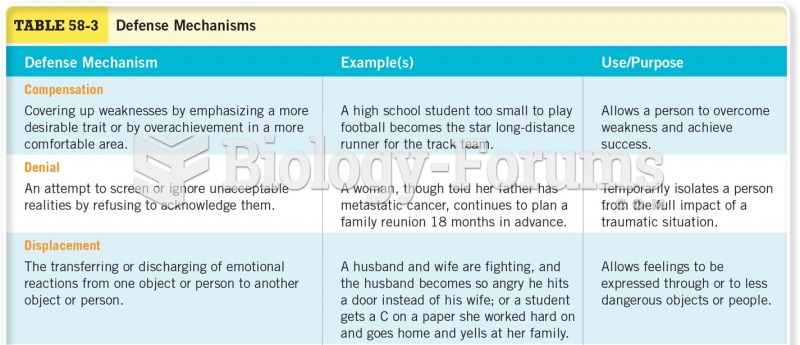|
|
|
The average human gut is home to perhaps 500 to 1,000 different species of bacteria.
The top five reasons that children stay home from school are as follows: colds, stomach flu (gastroenteritis), ear infection (otitis media), pink eye (conjunctivitis), and sore throat.
Fatal fungal infections may be able to resist newer antifungal drugs. Globally, fungal infections are often fatal due to the lack of access to multiple antifungals, which may be required to be utilized in combination. Single antifungals may not be enough to stop a fungal infection from causing the death of a patient.
It is difficult to obtain enough calcium without consuming milk or other dairy foods.
There are more sensory neurons in the tongue than in any other part of the body.







